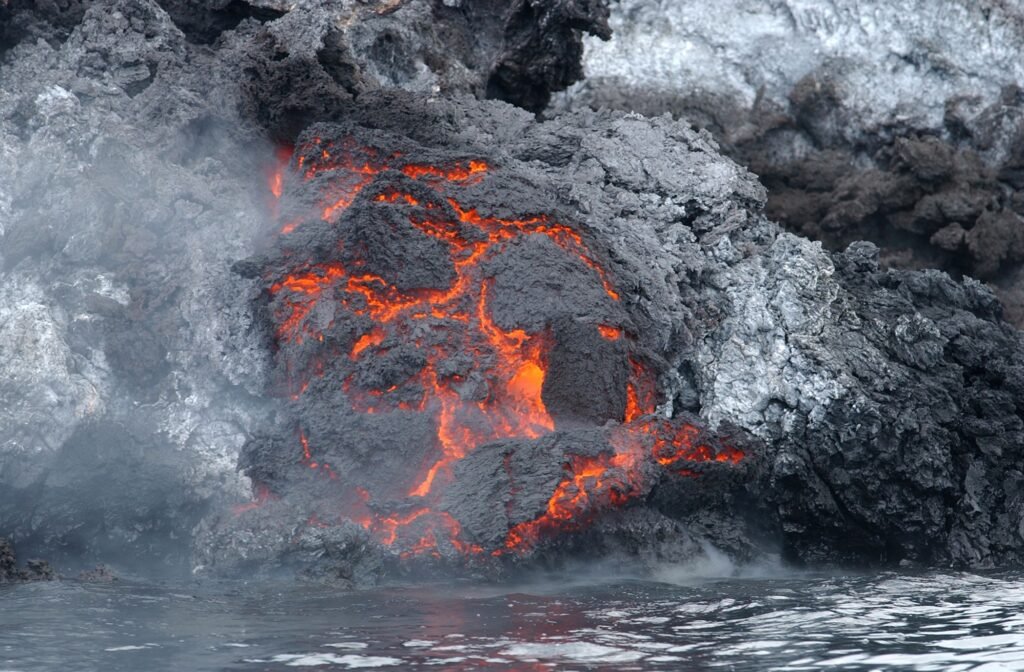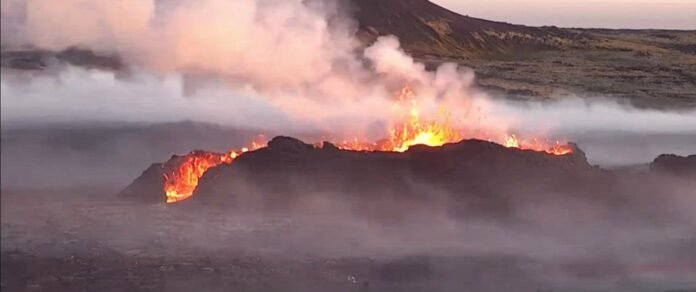Iceland Earthquakes
Iceland, a country renowned for its landscapes, geysers and volcanoes has recently been facing an increase, in activity. This surge in earthquakes has led the authorities to declare a state of emergency. Over the course of one day an astounding 800 tremors were recorded, raising concerns about volcanic eruptions and the safety of the people living there. In this article we will delve into the details of these earthquakes explore the reasons, behind this heightened activity and discuss the measures taken by authorities to ensure the well being of residents.
The Unusual Surge in Earthquakes
Iceland, located on the Mid Atlantic Ridge, which’s a boundary, between plates has always been familiar with geological activity. However the recent increase in events has attracted the attention of experts. Raised concerns among the local residents. Over the course of one day around 800 tremors of varying magnitudes and intensities were felt across the country. This sudden rise in earthquakes has sparked worries about eruptions since Iceland is home, to multiple active volcanoes.

State of Emergency Declaration
In light of the unusual earthquakes happening authorities, in Iceland have announced a state of emergency. This means that the government can now swiftly and decisively respond to protect its citizens and reduce dangers. The declaration also enables them to allocate resources towards emergency response efforts and collaborate with organizations, for better coordination.
Potential Volcanic Eruptions
Iceland is located on the Mid Atlantic Ridge, which’s a region where the North American and Eurasian plates are separating. This geographical arrangement makes Iceland susceptible, to activity. The recent earthquakes might suggest a rise in magma movement beneath the surface, which could result in eruptions. The recent instance of eruption, in Iceland happened in 2021 when the Fagradalsfjall volcano became active.

Measures Taken to Ensure Safety
The Icelandic government, known for its proactive approach to natural disasters, has implemented several measures to ensure the safety of its residents. These include:
1. Evacuation Plans:
Authorities have developed evacuation plans for areas at higher risk of volcanic activity. Residents in these zones are being informed about emergency procedures, evacuation routes, and designated safe zones.
2. Monitoring and Early Warning Systems:
Iceland has a sophisticated network of seismic monitoring stations. These stations provide real-time data on earthquake activity and help scientists assess the likelihood of volcanic eruptions. Early warning systems are in place to alert residents in the event of an imminent threat.
3. International Cooperation:
The Icelandic government is collaborating with international agencies and experts to gather insights and expertise in managing volcanic crises. This includes sharing data, coordinating response efforts, and seeking assistance if needed.
4. Public Awareness Campaigns:
To keep the public informed and prepared, authorities are conducting public awareness campaigns. These initiatives aim to educate residents about the risks associated with seismic activity, the importance of following official guidance, and the need for preparedness.

FAQs:
Q1: Are earthquakes common in Iceland?
A1: Yes, earthquakes are relatively common in Iceland due to its location on the Mid-Atlantic Ridge. The country experiences both tectonic plate movements and volcanic activity, contributing to seismic events.
Q2: How do authorities monitor earthquakes in Iceland?
A2: Iceland has a comprehensive network of seismic monitoring stations that continuously record and analyze earthquake activity. This data is crucial for assessing potential volcanic threats and issuing early warnings.
Q3: What should residents do in the event of a volcanic eruption?
A3: Residents in high-risk areas should follow official evacuation plans and guidelines provided by authorities. Staying informed through local news and adhering to emergency procedures is essential for personal safety.
Q4: Is international assistance available to Iceland in times of volcanic crises?
A4: Yes, Iceland collaborates with international agencies and experts to enhance its capabilities in managing volcanic crises. This collaboration includes data sharing, coordination of response efforts, and, if necessary, seeking international assistance.
Q5: How often do volcanic eruptions occur in Iceland?
A5: Iceland experiences volcanic eruptions periodically. The frequency and intensity vary, but the country has a history of both small and large volcanic events. The most recent eruption occurred in 2021 at the Fagradalsfjall volcano.
To summarize Icelands decision to declare a state of emergency in response, to the increase in earthquakes highlights their dedication to safeguarding the well being of their citizens. The proactive steps taken, such as implementing evacuation strategies monitoring systems and collaborating with nations are aimed at minimizing the hazards linked to volcanic eruptions. As events continue to unfold it is vital for both residents and officials to remain informed and ready, for any developments.

Also Read
https://galaxynews360.com/macron-calls-on-israel-to-stop-killing/
https://galaxynews360.com/apple-iphone-15-pro-max-review/
https://galaxynews360.com/samsung-galaxy-s24-ultra-vs-iphone-15/





